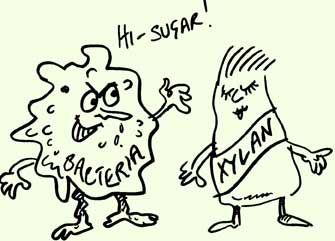|
|
|
Researchers from the University of Leeds have modified one of the trillions of bacteria that inhabit the human gut so that it will produce human growth factors which help repair the layer of cells lining the intestine, thus reducing the inflammation seen in Crohn's disease and ulcerative colitis. First Published in April 2007 Click here for more research on Crohn's disease
|
If you found this article interesting, you will find many more general articles and research reports on coeliac disease here, and lots of information on the management of coeliac disease here.
You can also find articles and research reports on gluten intolerance here and articles on a wide range of other digestive conditions here.
For hundreds of gluten free foods see our freefrom food section here, and for nearly 800 gluten-free recipes see here.
And if you would like to get our FREE fortnightly e-newsletter with new products, recipes, articles and all the latest news from the allergy and freefrom world, just sign up here.









